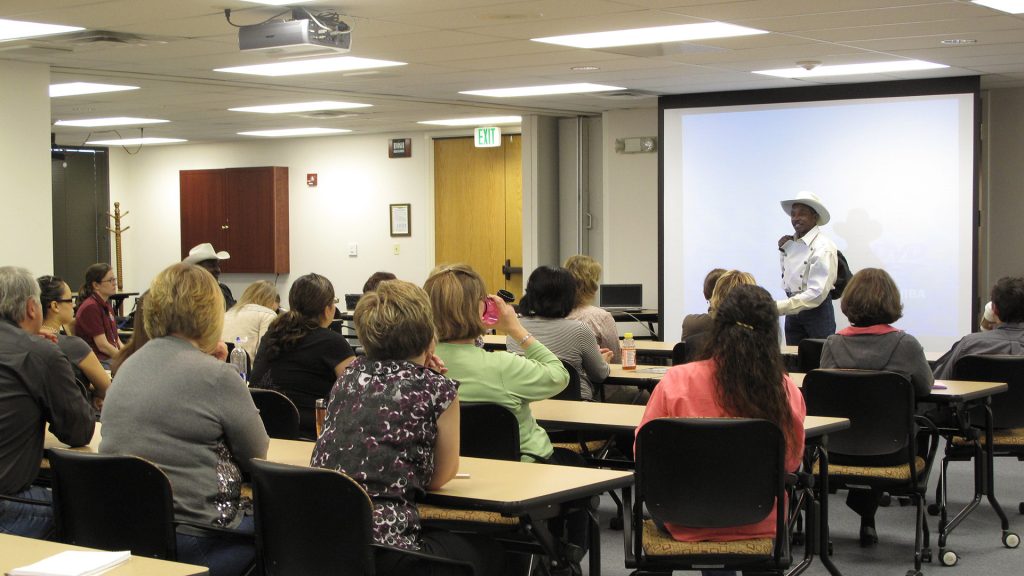Imagine going to a job interview and taking your parents with you. It seems like a far-fetched perspective, but up to 20% of Gen Z potential employees are doing it, and it’s turning off their employers. As we explore here, this is only the latest in a line of faux pas that the younger generation is committing.
Survey Finds Employers are Avoiding College Graduates

In a bizarre twist that would shock most employers from a decade ago, many hiring positions overlook college students. It turns out that most recruiters and interviewers think they’re more trouble than they’re worth.
The survey took the opinions of over 800 employers. While the sample size isn’t massive, it shows a clear trend towards hiring older people and overlooking new graduates. Part of that stems from how they approach work.
Aren’t College Graduates a Better Investment?

Prevailing wisdom says that college graduates are far better for new positions at a company because they can be trained. Over time, those college graduates rise up the ranks, and their skills prove helpful to companies on many different levels.
This worked out well in the past because employees who joined the company after graduating owed the company some loyalty. They would usually spend their time working to improve, hoping to move up in the ranks or get to a better position within the company structure.
A Paradigm Shift

Around the early 00s, there was a paradigm shift in company support, which changed how businesses treated their employees. Since many companies assumed that they had employees locked in for life, they didn’t go the extra mile to make a positive work environment for them.
Naturally, that meant that many professionals worked for the company for a certain amount of years, then jumped ship to a new employer. Sometimes, these employers were direct competitors to the company that had hired them out of college. Employee loyalty took a nosedive.
The Current Situation Is Related

While companies have somewhat course-corrected, the ability of human resources departments to understand what employees need is still limited. They’re lagging severely behind the curve when providing a suitable work environment.
Today’s college graduates have heard the horror stories from employees firsthand. Their view of employers has forever been tainted, so they want to get what they can from anyone willing to hire them. However, they seem to forget one significant difference between them and previously employed people.
No Bargaining Leverage

Employed people who jump ship from one company to another usually have a select set of skills that may be useful to an employer. As such, they will be rated much higher than someone without any noticeable marketable skills. Companies are willing to pay for those skills.
A recent university graduate will be worth a lot less to a company than someone who has been hired at another business before and has the experience to prove it. Many Gen Z employment seekers forget that it’s an exchange of skill for compensation.
The Survey Reveals Some Other Shocking Facts

The number one reason set forth as to why companies are avoiding hiring graduates is because they don’t impress on the interviews. It’s not just that they had terrible answers to questions asked of them. It extends to a few other things.
One of the most damning facts in the study suggests that more than half the young interviewees refused to make eye contact with their interviewer. Timid body language is a definite negative when it comes to hiring someone.
Other Issues With The Gen Z Approach to Interviews

Aside from the poor body language and interaction with the interviewer, as much as one-fifth of the Gen Z interviewees came to the interview with one or more parents. Interviewers see this as a sign of poor ability to manage their own decisions or inability to make decisions for themselves.
Also among the top reasons interviewers avoided hiring Gen Z employees was because of their lack of proper attire for the interview. Many Gen Z interviewees don’t know (or don’t care) what adequate attire for an interview is. Sometimes, the company is just a number they must tick off on their job search.
Trying To Get More Experienced Professionals

In many cases, the employers in question were looking to hire more skilled professionals. The added experience that someone who has a few years in a similar position brings to the table is priceless. For one thing, the company doesn’t have to train them.
Moreover, these professionals already have an idea of how to behave in the workplace and what an acceptable way to dress and speak is. New graduates have to learn all of these things, and they can be a headache for HR departments to deal with.
A Few Tactics Used to Catch Experienced Workers

Among the methods used by companies to get the attention and approval of experienced workers includes offering them higher salaries than they would initially pay. Some companies even bumped the benefits or padded the retirement plans to get more experienced workers interested in their open positions.
With hybrid and remote work such a central selling point for jobs, some companies were willing to adjust their requirements for a job. Other businesses opted to fill positions with candidates they knew were overqualified just to avoid hiring college graduates.
Young Professionals Have a Reputation for Being Difficult to Work With

Why have businesses opted for older, sometimes overqualified candidates over fresh, new, young graduates? Part of the reason comes from how difficult they are to get along with in the workplace. Most Gen Zs have a different view of the world than many of their coworkers.
Some supervisors and coworkers say that they don’t like working with Gen Z because they always have to watch what they say to avoid setting them off. It’s like working next to a ticking time bomb, where the wrong word would spell disaster.
Human Resources Departments Are Also Wary

Human resources also don’t like dealing with Gen Z, but for slightly different reasons. Many Gen Z workers believe they know what they’re entitled to and are willing to make the lives of personnel in HR departments complex until they’re satisfied they’re getting what they expect to.
HR also has to deal with all the complaints that Gen Z employees bring against other employees. While some of them are well-grounded, the vast majority are frivolous and don’t actually affect the business on a broader scale. However, ignoring these complaints comes with the risk of being ‘canceled.’
An Overall Lack of Professionalism

Most employees understand that, as a professional, certain things are expected of them. Experienced employees have quotas they try to meet and are usually self-motivated to do what they see as productive for the company and their position. That professionalism usually comes from their view of the company and their own position in it.
Gen Z demonstrates a different view of professionalism. They don’t see their time as being the company’s time, even when they’re being paid for it. They also don’t take feedback well and have terrible communication skills, which annoys their coworkers.
The Pandemic Had a Major Effect

Between 2020 and 2022, college graduates faced a terrible uphill struggle. They might be hired and enter the workforce, but they didn’t get the chance to learn how an office functions and how the hierarchy works since they were confined to their own homes. This comes with experience within a workplace.
Without that interpersonal interaction, Gen Z workers have a hard time coming to grips with the life inside of an office. They lack office etiquette and have poor communication skills because of their lack of presence in an office during those years.
It’s The Simplest of Things That Are Difficult

Employers often realize that Gen Z employees don’t understand the simplest of things. Ideas like a chain of command of a hierarchy don’t seem to register for them. The ability to work independently without supervision is another area in which they fall short.
Another significant issue comes from their behavior in a serious business setting. Some managers have noted that their Gen Z employees don’t seem to value anyone else’s time. They are often on their phones in the middle of a meeting, distracted or distanced from the discussion at hand.
Are These Issues Fixable?

The underlying problem is that Gen Z is woefully underprepared for the working world. If they would like to compete against more experienced people, they have to notice where their strengths are and use those. But they also have to shore up their weaknesses, which many interviewers have pointed out.
Things like eye-contact in a professional environment is crucial to communication. Discussion with peers forms the core of how offices operate. These skills (typically called ‘soft skills’) are where Gen Z fails at. Companies sometimes provide courses to help their employees work on their soft skills, but Gen Z might be better served doing that work themselves.






